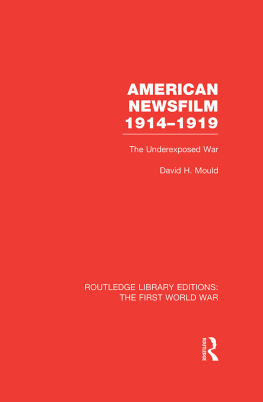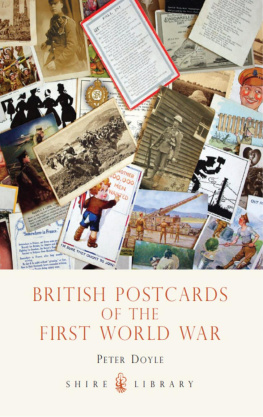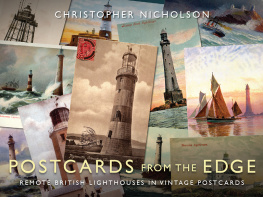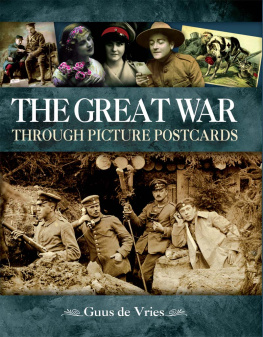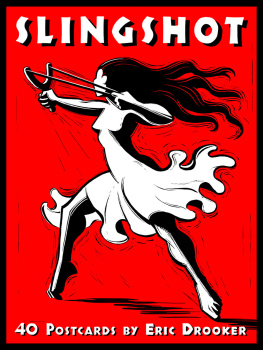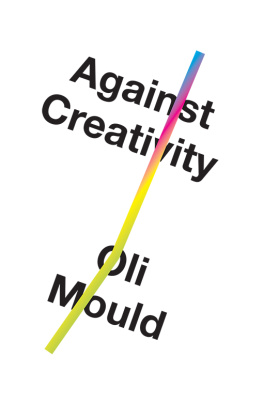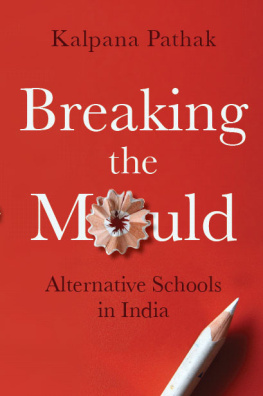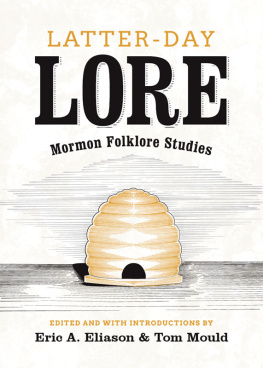David H. Mould - Postcards from Stanland
Here you can read online David H. Mould - Postcards from Stanland full text of the book (entire story) in english for free. Download pdf and epub, get meaning, cover and reviews about this ebook. year: 2016, publisher: Ohio University Press, genre: Politics. Description of the work, (preface) as well as reviews are available. Best literature library LitArk.com created for fans of good reading and offers a wide selection of genres:
Romance novel
Science fiction
Adventure
Detective
Science
History
Home and family
Prose
Art
Politics
Computer
Non-fiction
Religion
Business
Children
Humor
Choose a favorite category and find really read worthwhile books. Enjoy immersion in the world of imagination, feel the emotions of the characters or learn something new for yourself, make an fascinating discovery.

- Book:Postcards from Stanland
- Author:
- Publisher:Ohio University Press
- Genre:
- Year:2016
- Rating:3 / 5
- Favourites:Add to favourites
- Your mark:
- 60
- 1
- 2
- 3
- 4
- 5
Postcards from Stanland: summary, description and annotation
We offer to read an annotation, description, summary or preface (depends on what the author of the book "Postcards from Stanland" wrote himself). If you haven't found the necessary information about the book — write in the comments, we will try to find it.
Postcards from Stanland — read online for free the complete book (whole text) full work
Below is the text of the book, divided by pages. System saving the place of the last page read, allows you to conveniently read the book "Postcards from Stanland" online for free, without having to search again every time where you left off. Put a bookmark, and you can go to the page where you finished reading at any time.
Font size:
Interval:
Bookmark:
Postcards from Stanland

Author David Mould meets an eighteenth-century Kazakh warrior chief (batyr) in the Tian Shan Mountains.
Postcards from Stanland
Journeys in Central Asia
David H. Mould

Ohio University Press
Athens
Ohio University Press, Athens, Ohio 45701
ohioswallow.com
2016 by Ohio University Press
All rights reserved
To obtain permission to quote, reprint, or otherwise reproduce or distribute material from Ohio University Press publications, please contact our rights and permissions department at (740) 593-1154 or (740) 593-4536 (fax).
Printed in the United States of America
Ohio University Press books are printed on acid-free paper 
26 25 24 23 22 21 20 19 18 17 16 5 4 3 2 1
: Youre in the Polygon nuclear zone, but you wouldnt know it.
Unless otherwise noted, photographs are by the author.
Library of Congress Cataloging-in-Publication Data
Mould, David H. (David Harley), 1949
Postcards from Stanland : journeys in Central Asia / David H. Mould.
pages cm
Summary: Central Asia has long stood at the crossroads of history. It was the staging ground for the armies of the Mongol Empire, for the nineteenth-century struggle between the Russian and British empires, and for the NATO campaign in Afghanistan. Today, multinationals and nations compete for the oil and gas reserves of the Caspian Sea and for control of the pipelines. Yet Stanland is still, to many, a terra incognita, a geographical blank. Beginning in the mid-1990s, academic and journalist David Moulds career took him to the region on Fulbright Fellowships and contracts as a media trainer and consultant for UNESCO and USAID, among others. In Postcards from Stanland, he takes readers along with him on his encounters with the people, landscapes, and customs of the diverse countriesKazakhstan, Kyrgyzstan, Tajikistan, and Uzbekistanhe came to love. He talks with teachers, students, politicians, environmental activists, bloggers, cab drivers, merchants, Peace Corps volunteers, and more. Until now, few books for a nonspecialist readership have been written on the region, and while Mould brings his own considerable expertise to bear on his accountfor example, he is one of the few scholars to have conducted research on post-Soviet media in the regionthe book is above all a tapestry of place and a valuable contribution to our understanding of the post-Soviet worldProvided by publisher.
Includes bibliographical references and index.
ISBN 978-0-8214-2176-5 (hardback : acid-free paper) ISBN 978-0-8214-2177-2 (paperback : acid-free paper) ISBN 978-0-8214-4537-2 (PDF)
1. Asia, CentralDescription and travel. 2. Mould, David H. (David Harley), 1949TravelAsia, Central. 3. KazakhstanDescription and travel. 4. KyrgyzstanDescription and travel. 5. TajikistanDescription and travel. 6. UzbekistanDescription and travel. 7. Post-communismSocial aspectsAsia, Central. 8. Asia, CentralSocial life and customs. 9. Asia, CentralSocial conditions. I. Title.
DS327.8.M68 2016
958'.042dc23
2015036332
Dedicated to my wife, Stephanie Hysmith, my lifetime traveling companion, and to the late Hubert Wilhelm, who taught me to see the world around me in new ways
Contents
Illustrations
Figures
Maps
Preface
I wrote my first travel journal at the age of nine. It had a circulation of precisely threemy father, mother, and sister. Im not sure they actually read it, although they encouraged me to keep writing. It was run-of-the-mill stuff, a prosaic accounting of towns and sights visited, meals eaten, weather, and beach conditionsthe predictable literary output of a nine-year-old. However, I would not have written anything, or asked my father to have my notes typed (with carbon copies), if I had not had the opportunity to travel.
In Britain in the 1950s and 1960s, most middle-class families took a summer vacation at the seaside, hoping the sun would peep through the clouds. Usually it did not. I have memories of cold, rain-swept South Coast resorts, with families huddled in their cars, the parents drinking tea from a thermos and reading the tabloids, glancing occasionally at the grey skies and the cold waves crashing on the stony beach. The children fidgeted and fought in the back of the car. There were no handheld gadgets to distract them; after they got bored with their toys, there wasnt much else to do but start destroying the upholstery or tormenting the family dog, if it was unlucky enough to be on the trip. Occasionally, a parent would say: Children, were at the seaside. Arent we all having a lovely time? No one was, but no one wanted to admit it. On rare sunny days, the kids could play on the beach, perhaps even finding a patch of sand, but most days it was too cold to swim; the main seaside attractions were the funfairs on the piers.
Most years my parents headed for France or Spain, where the weather was predictably better. We strapped the family tenta heavy, complicated canvas affair with many poles, pegs, and guy ropes, which looked as if it had been salvaged from a M*A*S*H unitonto the roof rack of the Vauxhall Velox, and set off for Dover to take the ferry across the English Channel to Calais or Boulogne. We drove south, buying baguettes, butter, cheese, and tomatoes for picnic lunches and camping every night, my parents enjoying a bottle of vin ordinaire over dinner. I sat in the backseat, noting the kilometer posts, the terrain, and the historic landmarks, and taking notes. Rouen, I earnestly remarked, has a large cathedral. I helped navigate, a serious responsibility in the days before France built its equivalent of a motorway or interstate highway system. I was fascinated by the road maps and the names of towns, villages, and rivers, and I loved to plot our route. Often I enjoyed the tripreading maps, getting lost, and asking for directions in shockingly bad schoolboy Frenchmore than the destination.
I made my first solo trip at the age of seventeen, spending three months at student work camps in France, hitchhiking across the country and religiously writing postcards home. Unlike the typical Weather lovely, wine cheap, pate de foie gras gave me indigestion, wish you were here greeting, my postcards were crammed with details of my observations, now more insightful than Rouen has a large cathedral. I bought cards with the largest possible writing space, and usually managed to cram more than one hundred words into the left-hand side. Over the next decade, traveling with my then-wife, Claire, through France, Spain, Portugal, Italy, Switzerland, Germany, Greece, Turkey, and Morocco, I wrote many more postcards. Looking back, I wish I had sent some to myself because they were the only records of our trips to Fez and Marrakech (where I picked up both a full-length Berber djellabah and head lice) or of lingering too long on a Greek island, missing the bus at Thessaloniki and having to hitchhike the 1,250 miles back to Ostend on the Channel.
In the early 1970s, I worked as a newspaper reporter for the Evening Post, a large-circulation daily in Leeds, the main industrial and commercial center in West Yorkshire. My work travel was largely confined to mining and textile towns, with two trips to Northern Ireland, not exactly a tourist destination in the 1970s. I wanted to write about what Id seen in Southern Europe, but my editor wasnt interested. People didnt want to read about the Basque Country or the Bosphorus, he said. Perhaps I could write about bed-and-breakfasts in Scarborough or renting a cottage at Skegness? Neither was on my holiday list, so my dream of being a travel writer was stymied. In 1978, I moved to the United States for graduate school, and in 1980 took a faculty position at Ohio University. It would be another fifteen years, after my first trip to Central Asia in 1995, before I started travel writing again.
Next pageFont size:
Interval:
Bookmark:
Similar books «Postcards from Stanland»
Look at similar books to Postcards from Stanland. We have selected literature similar in name and meaning in the hope of providing readers with more options to find new, interesting, not yet read works.
Discussion, reviews of the book Postcards from Stanland and just readers' own opinions. Leave your comments, write what you think about the work, its meaning or the main characters. Specify what exactly you liked and what you didn't like, and why you think so.

